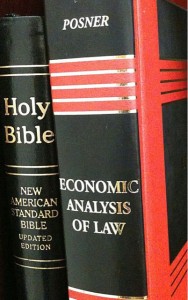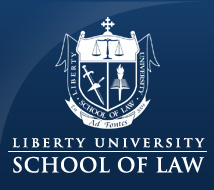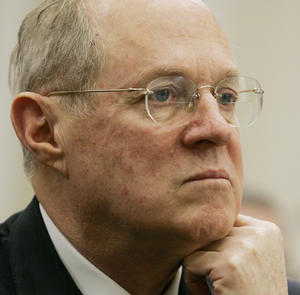Rodney Chrisman
August 11, 2010
As I have indicated elsewhere, I think there is great value in considering the Older Testament or Biblical Law as a model for the home, the civil magistrate, and ethics in general. As Paul wrote to Timothy, “[a]ll Scripture is inspired by God and profitable for teaching, for reproof, for correction, for training in righteousness; so that the man of God may be adequate, equipped for every good work (2 Tim. 3:16-17 (NASB)).”
While it is fair to apply this verse to all of the Bible, Paul would have certainly had primarily the Old Testament Scriptures in mind when writing this verse. The Older Testament contains an enormous amount of law. It would be strange indeed if Paul actually meant by “all Scripture” only “all Scripture that does not contain the Law!” Especially since he had written to Timothy in an earlier letter stating that “we know the Law is good, if one uses it lawfully (1 Tim. 1:8 (NASB)).”
Even though it is clear that the Law, as a part of all Scripture, is valuable for teaching, reproof, correction, and training in righteousness, it is not always equally clear how we should understand and apply the Older Testament Law in our times. In fact, there are a number of mistakes that are commonly made in understanding, using, and applying Biblical Law.
One such mistake is that to assume that Biblical Law is identical in nature to contemporary law. [continue reading…]
Rodney Chrisman
August 10, 2010
 For students, teachers, professors, and others in education, the school year is about it begin again. That means we will all be in need of some self-discipline. I know I certainly will.
For students, teachers, professors, and others in education, the school year is about it begin again. That means we will all be in need of some self-discipline. I know I certainly will.
I have been challenged, convicted, and helped in that by a list of ten tips for self-discipline that I heard John MacArthur give in a sermon once. After I heard the sermon, I typed the tips up with a few comments, and I often refer to them to encourage me to be more self-disciplined. (For example, compare the picture of a portion of my desk on the left to tip number 2 below. This is certainly an area for me to exercise some self-discipline toward and dominion over today!)
Here are the tips: Click Here to Read the Tips –>
Rodney Chrisman
August 9, 2010

Higher law was a foundational idea in the development of the Western Legal Tradition. Higher law is the idea that there was a law above the law.
This law above the law was, of course, God’s Law. Every creature was expected to be subject to the Creator God’s demands and dictates. The importance of Biblical law, in this sense, was a given. No one doubted it. No one disputed it.
Thus, it could be said that the dominant legal philosophy or jurisprudence was higher law, or natural law as that term was understood before the Enlightenment. (For instance, Johannes Althusius (1557-1638) defined natural law as “the will of God for men.”[1] That is a definition of natural law that I can probably live with.)
Now, the dominant jurisprudence in America is quite different. And, most Americans don’t even know what it is. [continue reading…]
Rodney Chrisman
August 7, 2010
How do you view work?
How do you think of work? Particularly hard physical labor? Or perhaps work that involves mind-numbing repetition? Or work that society views as being unimportant? What do you think of the work that you do? Answers to questions like these are important to discovering your calling.
Unfortunately, I think most people view work as a negative, a “drag,” something that has to be done in order to get to leisure, or maybe worse. Most Americans think of work as generally something to be avoided, rather than what it actually is. (Now, I am not being overly naive. I know there are workaholics out there. I will address that issue in a later post.)
As a part of the fourth commandment, the Lord said that we should work six days a week. “Six days you shall labor, and do all your work (Ex. 20:9 (ESV)).” We are commanded to labor and work. Would God command us to do something that is evil or harmful to us? The answer has to be no. We know “his commandments are not burdensome (1 John 5:3b (ESV)).” So, how then should we understand work? [continue reading…]
Rodney Chrisman
August 7, 2010
 The Liberty University School of Law received full ABA approval earlier today. You can read the official announcement from the University here.
The Liberty University School of Law received full ABA approval earlier today. You can read the official announcement from the University here.
This is great news and the culmination of hard work and dreams that extend to before my birth. When Dr. Falwell in 1971 founded Liberty University, the dream of a law school was a primary part of his vision for Liberty. Now, we have reached the point of full ABA accreditation. The Lord be praised!
It is a humbling privilege to serve as a professor of law and be a part of God’s work at Liberty Law. We are one of the few law schools in the world striving to understand and teach the law from a distinctly evangelical Christian worldview. May God help us and grace us to play some part in His establishing justice in the earth so that the distant coastlands will hope in His law. (Is. 42:4)
Rodney Chrisman
August 6, 2010
Well, not surprisingly, the government and media manufactured “recovery” appears to be in trouble. As a recent article in the Wall Street Journal points out, the outlook for 2010 is not good. And, it is not likely to get better in 2011 either. (At the time of writing, you can read the story here.)
Further, the job market is faltering. Just today the labor market numbers came in worse than expected. (Again, as I write this, you can read about the bad labor news here in the Wall Street Journal.) [continue reading…]
Rodney Chrisman
August 6, 2010
 This is the man who will decide the definition of marriage in America. In case you don’t know, his name is Anthony McLeod Kennedy. He is an Associate Justice on the Supreme Court of the United States of America, and, as stated, he will most likely decide the definition of marriage for the rest of the nation.
This is the man who will decide the definition of marriage in America. In case you don’t know, his name is Anthony McLeod Kennedy. He is an Associate Justice on the Supreme Court of the United States of America, and, as stated, he will most likely decide the definition of marriage for the rest of the nation.
It is painfully ironic that the nation that tries to go about solving all of the problems of the world by spreading the “gospel” of democracy will decide one of the most important questions that a society can possibly answer in the most undemocratic of ways. We are going to end up leaving this decision of such fundamental importance up to one man. Justice Kennedy will define marriage for us. . . . Click here to read more and find out how.
Rodney Chrisman
August 5, 2010
My wife has a great post on her blog this morning. You can read it here. Actually, I think all of her posts are great. So, why I am blogging about her blog today in particular? Because I want to issue a challenge to any men who might venture over there and read it.
Basically stated, her argument is that women should not insist that their husbands do household chores and thereby neglect their callings. That egalitarianism, she suggests, might be one of the reasons we don’t see vast numbers of great men rising up in our times to lead their families, churches, and the nation as a whole. [continue reading…]
Rodney Chrisman
August 5, 2010
You may not have realized it, but there are no longer any distinct gender roles in marriage or society. At least according to Judge Vaughn R. Walker of the United States District Court for the Northern District of California. In his opinion striking down California’s Proposition 8 (Perry v. Schwarzenegger), he writes:
The evidence shows that the movement of marriage away from a gendered institution and toward an institution free from state-mandated gender roles reflects an evolution in the understanding of gender rather than a change in marriage. The evidence did not show any historical purpose for excluding same-sex couples from marriage, as states have never required spouses to have an ability or willingness to procreate in order to marry. Rather, the exclusion exists as an artifact of a time when the genders were seen as having distinct roles in society and in marriage. That time has passed. (115, emphasis added)
Wow. That is a sweeping statement. . . . Click to read more . . .
Rodney Chrisman
August 3, 2010
John Calvin, in the 1559 version of his Institutes of the Christian Religion , wrote this about a particular vocation or calling: “Wherefore no man can doubt that [this vocation or calling] is, in the sight of God, not only sacred and lawful, but the most sacred, and by far the most honourable, of all stations in mortal life (4.20).”
, wrote this about a particular vocation or calling: “Wherefore no man can doubt that [this vocation or calling] is, in the sight of God, not only sacred and lawful, but the most sacred, and by far the most honourable, of all stations in mortal life (4.20).”
I think upon reading that quote, and hearing that it was written by John Calvin, the great Reformer, pastor, and theologian, the natural assumption that most of us would make is that he is speaking of the office of pastor. However, he most emphatically is not. In fact, this assumption shows just how far we have fallen into the pit of the “secular-sacred” distinction.
Yesterday’s post addressed this so-called “secular-sacred” distinction that has come to dominate the American church. In that post, I discussed this view and its origins in early church history. I also noted that it has more to do with Gnosticism and Greco-Roman philosophy than Biblical Christianity. As I stated there, this view gripped the church for over a thousand years, and it was one of the many false teachings from which the Reformers rescued the church.
So, Calvin does not think that the most honourable and sacred of all stations in mortal life is the pastor. Can you guess what Calvin thinks it is? . . . Click here to find out!



